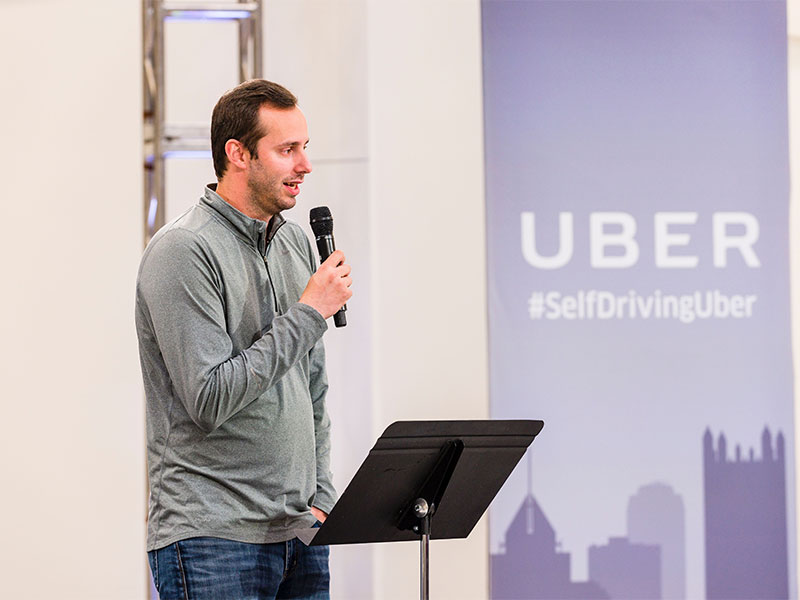Uber forced to sack star engineer in legal battle with Google
In a court case over the alleged theft of trade secrets, Uber has fired Anthony Levandowski, former head of its autonomous driving division

Anthony Levandowski is a star engineer, with his autonomous tech expertise explaining Uber's reluctance to let him go
Uber has sacked the former head of its autonomous driving division, star engineer Anthony Levandowski, over his refusal to cooperate in a court case relating to the company’s alleged theft of trade secrets from Google.
Levandowski, one of Silicon Valley’s top autonomous vehicle specialists, was a pivotal force in Google’s pioneering self-driving project from its inception in 2009. He left the Google outpost, now known as Waymo, to found his own company called Otto in May 2016.
Levandowski, one of Silicon Valley’s top autonomous vehicle specialists, was a pivotal force in Google’s pioneering self-driving project
Hoping to use Levandowski’s expertise to advance an ambitious plan to roll out driverless cars for its service, Uber bought Otto a few months after it was founded for $700m, and appointed Levandowski as head of its autonomous vehicles division.
The court case revolves around 140,000 documents that Levandowski downloaded before leaving Waymo, an action his old employer alleges amounts to stealing trade secrets. Google claims that technology developed by Waymo is now in use in Uber’s Lidar feature, which enables cars to detect the position of the road and obstructing objects using reflected pulses of light. Uber denies this.
Levandowski is not a defendant in the court case, but was ordered by a judge to hand over the documents in March. He refused, evoking his Fifth Amendment right to avoid self-incrimination, and has been under pressure from Uber to testify ever since.
In a letter filed to a US federal court on May 30, Uber said that it was firing him for failing to comply with an internal deadline to hand over the documents.
Uber had tried to avoid severing Levandowski’s employment, while complying with the investigation, by replacing him as head of the driverless division and preventing him from working directly with Lidar technology. Judge William Alsup criticised the company for its approach, asserting that Levandowski was still a legal liability if he used the documents while in Uber’s employment, even if Uber had no access to them.
The race to put the first self-driving cars on the road is heating up, and skill as specialised as Levandowksi’s in this field is very rare. Competition from established software giants such as Google and Apple, newer start-ups such as Uber, and hardware heavyweight Tesla, has pushed the salaries of autonomous engineering talent skywards, into the tens of millions of dollars according to a New York Times report. Losing Levandowski’s expertise at this stage in development will be a blow to Uber’s efforts to launch a self-driving service.













